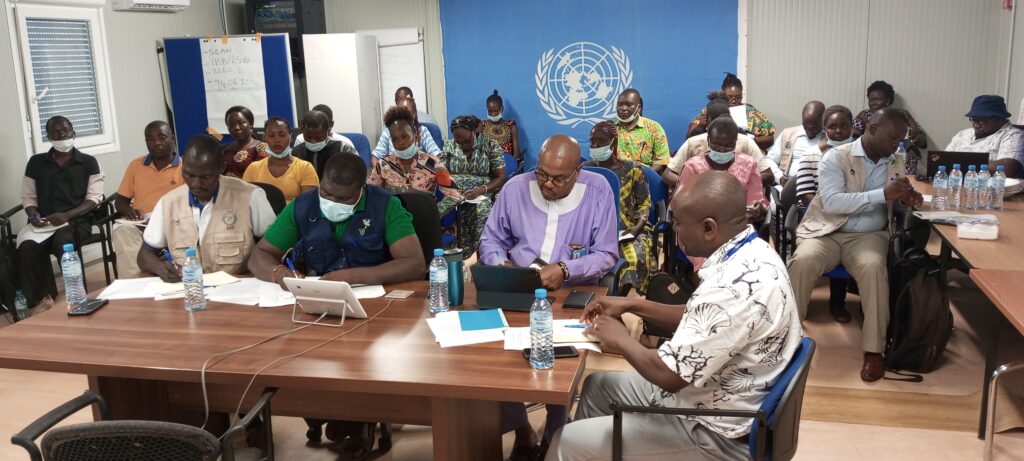The Network for Civil Society Organisations (NeCSOs) participated in the 6th SRSG meeting online at UNMISS. NeCSOs and some member organizations participated in the online meeting which covered other Civil Society Organisations (CSOs) from different states of South Sudan. The meeting was called for the CSOs representatives from different administrative areas such as Aweil, Bentiu, Pibor, Juba, Yei, Ruweng, Kuajok, Upper Nile, Rumbek, Torit, Wau, and Yambio to give their views on the action point from the 5th SRSG-CSOs meeting which was held on 29th November 2023. The action points from the previous meeting include:
- Assess capacity building needs of CSOs.
- Facilitate monthly meetings of the CSO networks.
- Support for the national CSOs meeting in Juba.
- CSOs to initiate regular engagements with the government.
NeCSOs stated that they have a well strong existing structure and have been strengthening the capacities of their member organizations across 8 counties in WES through various training such as:
- Organization and Institutional Development (OD/ID).
- Proposal Development/resource mobilization.
- Leadership and advocacy.
- Training on computer illiteracy.
- Budgeting and financial management.
This capacity-building training is ongoing with CSOs in other counties who have yet to receive it. Besides the training being conducted, NeCSOs has a constructed civic engagement center supported by the UNMISS and has services for its member organizations like the internet which helps out other organizations to access online resources and communication.
However, NeCSOs and its members could need Capacity building in the electoral process, legal and institutional frameworks, digital security, bill of rights, election processes, elections legal and institutional frameworks, and media laws.
The moderation of this meeting started with the Civil Affairs Director- Hiroko Hirahara and a letter was handed to NeCSOs Chairperson- Wanga Emmanuel who summarized the action points as follows:
- There is an urgent need to support the establishment of states networks where CSOs networks are still in their formation levels to enhance inclusive and collective engagement in civic education, advocacies, and election monitoring. (Network for Civil Society Organizations in WES is ready to support the other states to form their networks if invited).
- Urgent need for the formation of a national civil society network, that is made of a bottom-up approach where states networks will form the basis for its formation for smooth country-wide coordination, from the Bomas, Payams, all counties, and states.
- Need for training/capacity building of CSOs in legal and institutional frameworks, digital security, bill of rights, election processes, elections legal and institutional frameworks, and media laws.
- Build strong bonds between CSOs and the media houses for better civic engagement and advocacy.
- Embark on massive resource mobilization by the states and national CSOs network to support the achievements of CSOs planned activities in support of the transitional peace processes.
- Embark on joint massive civic education across the nation through the states networks and county coordination offices opposed to the current trend which only targets Juba and state capitals.
- Constant engagement with the government and parties to the agreement for the fulfillment of the transitional processes and credible election.
- Establishment of permanent central avenues for the coordination of CSOs activities in all the states and three administrative areas, for example, construction of civic engagement centers in the states.
- Formation of CSOs survivors’ network to protect CSO activists and also be able to facilitate their evacuation in times of great danger, to sustain CSOs activities in the country.
- Encourage and enhance inclusivity and engagement of youth, women, and people of special need from the Bomas, Payams, Counties, and states into CSOs activities.
- Advocate for civic and political space all over the country.
- Strengthen women’s participation in all the peace processes.
Writer: Bingba Tito


